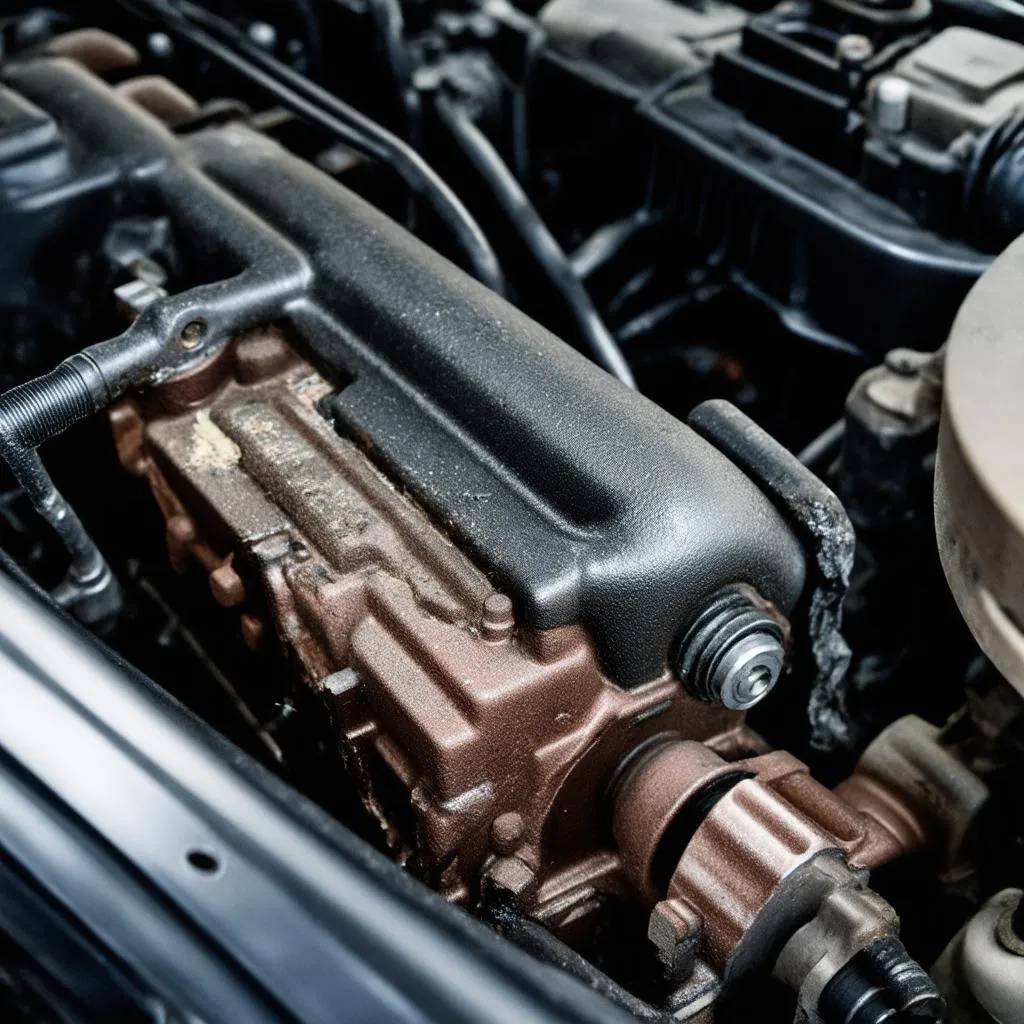Understanding Transmission Heat with VCDS: A Comprehensive Guide
“A hot temper often leads to a hot transmission.” Ever heard that one before? While it might sound like an old mechanic’s tale, there’s a grain of truth to it. Your car’s transmission, much like a hard-working engine, generates heat. Excessive heat, however, can spell trouble. That’s where your VCDS (Vag-Com Diagnostic System) comes in, acting as a window into your transmission’s temperature and overall health.
What Does “Transmission Heat VCDS” Mean?
Let’s break down this phrase:
- Transmission Heat: This refers to the temperature generated by your car’s transmission system as it works to shift gears and transfer power from the engine to the wheels.
- VCDS: This is a powerful diagnostic tool used to access and interpret data from your car’s computer, including crucial information about your transmission’s temperature.
Essentially, “Transmission Heat Vcds” is about using the VCDS to monitor and diagnose potential problems related to your transmission’s operating temperature.
Decoding Transmission Heat with VCDS
Think of your VCDS as a digital mechanic. It allows you to delve deeper than your dashboard gauges, providing specific data points about your transmission’s heat. Here’s why this is crucial:
- Early Detection: Overheating is a major cause of transmission damage. By using VCDS to track your transmission fluid temperature, you can identify abnormal heat spikes before they escalate into costly repairs. Imagine being able to address a minor leak before it turns into a transmission meltdown – that’s the power of early detection.
- Precise Diagnosis: VCDS doesn’t just tell you something is wrong; it provides the specific data points needed to pinpoint the root cause. This is invaluable for mechanics, allowing for targeted repairs and preventing unnecessary part replacements.
- Performance Optimization: For the enthusiast who understands the delicate balance within their car’s systems, VCDS can help ensure the transmission is operating within optimal temperature ranges, promoting longevity and performance.
Common Questions About Transmission Heat and VCDS
Let’s address some common queries car owners have about this topic:
1. What is a normal transmission temperature range?
Typically, transmission fluid temperatures between 175°F to 220°F (80°C to 105°C) are considered normal. However, this can vary depending on driving conditions, vehicle make and model, and even the type of transmission fluid used.
2. What causes transmission overheating?
Several factors can lead to excessive transmission heat, including:
- Low transmission fluid levels
- A clogged transmission filter
- Faulty transmission cooler
- Towing beyond your vehicle’s capacity
- Aggressive driving, especially in hot weather
3. Can I check transmission fluid myself?
While it’s possible, it’s generally recommended to have a professional mechanic check your transmission fluid. They have the experience and tools to ensure it’s at the correct level and in good condition.
4. How often should transmission fluid be changed?
This depends on your vehicle’s make and model, as well as your driving habits. Consult your owner’s manual for recommended service intervals.
5. Can ignoring transmission heat damage my car?
Absolutely. Prolonged exposure to high temperatures can degrade transmission fluid, damage seals, and even warp internal components, ultimately leading to expensive transmission failure.
 Transmission Heat Damage
Transmission Heat Damage
Navigating Transmission Health with VCDS
Beyond monitoring temperature, VCDS offers a plethora of data points that can provide deeper insights into your transmission’s health. These include:
- Transmission Fluid Pressure: This is crucial for smooth gear shifting and can indicate potential problems with the transmission pump or solenoids.
- Clutch Engagement: For vehicles with DSG (Direct Shift Gearbox) transmissions, VCDS allows you to monitor clutch engagement points and wear, enabling early detection of potential issues.
- Fault Codes: Like a digital crystal ball, VCDS can read and interpret fault codes stored in your car’s computer, providing valuable clues about transmission malfunctions.
By understanding these data points and their implications, you can proactively address potential transmission problems before they escalate.
The Importance of Regular Checks
Just as we prioritize our health with regular check-ups, our vehicles deserve the same care. Regularly monitoring your transmission’s temperature and other vital signs with VCDS can save you from costly repairs down the line.
 Mechanic Using VCDS on Car
Mechanic Using VCDS on Car
Beyond the Mechanics: A Touch of Feng Shui
While the technical aspects of car maintenance are paramount, some car owners find comfort in integrating principles of Feng Shui to promote harmony and balance within their vehicles. While there’s no direct correlation between transmission heat and Feng Shui, ensuring your car is well-maintained and running smoothly can contribute to a sense of peace and control during your journeys.
Need Help? We’re Just a Message Away!
We understand that navigating the world of car diagnostics can feel overwhelming. If you’re experiencing transmission issues, need help interpreting VCDS data, or simply want to learn more about keeping your car in top shape, our team of expert mechanics is here to assist you. Contact us via WhatsApp at +84767531508 for 24/7 support.
Drive with Confidence, Drive with Cardiagxpert.com
Your car is an extension of you, reflecting your journey and carrying you towards your destination. By understanding your car’s vital signs and leveraging the power of diagnostic tools like VCDS, you can ensure a smoother, more enjoyable, and ultimately, more confident driving experience.
This article is for informational purposes only and does not constitute professional mechanical advice. Always consult with a qualified mechanic for any car repairs or maintenance.
Interested in learning more about specific VCDS fault codes or how to perform a transmission fluid flush? Explore our other helpful articles on cardiagxpert.com! Click here to delve deeper into the world of automotive diagnostics.
